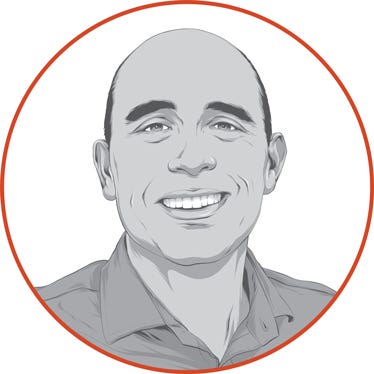
While many farmers are unsure, maybe nervous, about transition planning, not starting the process often makes things worse for everyone. That seems to be the default on most farms.
Yes – getting started is often the hardest part. So what’s the secret? How do you get transition traction, so your farm legacy moves forward?
Getting unstuck
Most of us have pulled out equipment that was stuck in the mud. Getting unstuck usually involves a plan of how to get unstuck, some basic equipment suitable for the job, and getting the ropes hooked up. But at every step it takes communication, coordination, and action to get unstuck safely.
We often see transition planning stuck in the “something to think about” phase – for years. Sometimes this lack of momentum has bred distrust and conflict as the senior farm owners and the next generation jockey for position.
Don’t misunderstand. Good people with solid families struggle with ‘making the first move’ and getting the transition process moving. For example, we often see the senior generation waiting for the next generation to ‘step up’ and tell them how they want the transition to work. At the same time, the next generation doesn’t want to be seen as disrespectful and step on their parent’s toes.
It’s a standoff of good people with good intentions. But it’s not sustainable because someone needs to make the first move.
Cracking the door
Who makes the first move? While there are differing views on this, I believe the senior generation needs to crack the door open on the discussion and move it forward. One way or another they need to either manage the process or give permission to someone else to manage the process, but they must give the nod of approval.
Let’s think about this. The senior generation often owns most of the assets and has control positions in the farm hierarchy. The senior generation is, after all, senior and holds a position of elder stateman full of experience and knowledge. They also have the most to lose if things go wrong.
If the farm stumbles because of a poor transition, it often affects their retirement income and ability to enjoy life. The senior generation often feels poor family dynamics more acutely than others because it reflects on their parenting and reputation. They have one shot at this and have the most to lose. They also have the most influence.
Since the seniors sit in so many places of influence, it’s hard to get traction on transition planning if Dad and Uncle are unwilling to participate. Transition planning is uncomfortable at times. It can get confusing, and conversations can become dynamic. That’s ok. In fact, it’s normal. The senior generation may manage the process, and that’s fine. They may be uncomfortable managing the process and have others inside the family, or other advisors, help out. That’s ok too. But they do have to crack the door to start.
Getting unstuck from the mud might seem straightforward but not always easy. It’s the same with a transition plan. And while we’ve probably gotten equipment ‘unstuck’ countless times, most farms only go through the transition plan once in a generation. So it’s not always a straightforward journey. Yes, it can be daunting. But getting started – ‘unstuck’ – is the first step. Maybe it’s time to start the conversation, crack the door open on your transition, and get rolling.
Schaefer is an executive management coach and succession planner for farms and agribusinesses. Read his blog, Transitions and Strategies, at FarmFutures.com. If you have a management or succession planning question, contact [email protected].
The opinions of the author are not necessarily those of Farm Futures or Farm Progress.
About the Author(s)
You May Also Like






